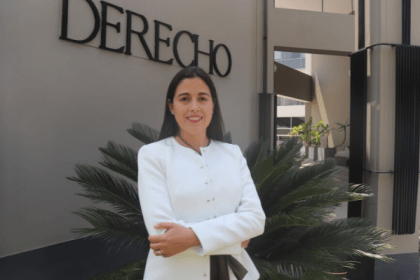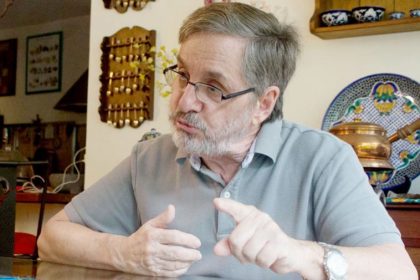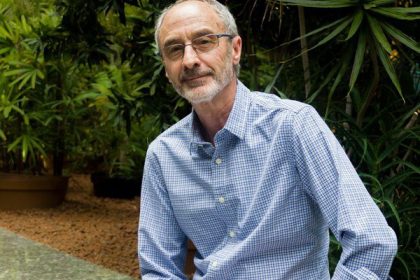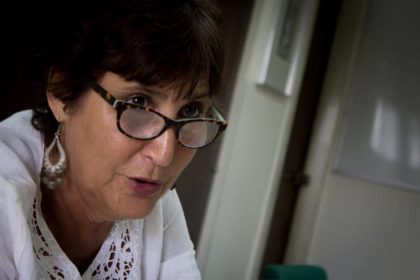Pedro Nikken is a lawyer, Professor of the Law School and of the postgraduate school of the International Law and Politics of the Legal and Political Science at the Central University of Venezuela. He was Judge (1980-1989) and former president (1983-1985) of the Inter-American Court of Human Rights. He was member of the Andean Commission of Jurists (1986) and Vice-president of the Inter-American Institute of Human Rights (1988). Provea consults his opinion on the international community’s role to face the Venezuelan crisis and its possible solutions through negotiation.

– I would like to start this interview with your definition of the current Venezuelan situation from the point of view of the international community
The Venezuelan crisis is getting the attention of the international community in two aspects, but they are the same in the end: the breach of democratic institutions and the unsatisfactory and serious human rights situation. I say this because, in the general context, States –especially those that abuse of human rights and are disrespectful with democracy- consider the relationship with citizens an exclusive privilege of the state. The sovereign concept of the state is actually a reactionary and old concept. Ever since the French Revolution, the sovereignty of the king –and later of the state- has been limited. After the World War II, the international community, after realising the State’s relationship with its citizens was extremely abusive, concluded this relationship was very dangerous to stay under its discretion without control, thus it was created the international system of human rights protection, and democracy defense and promotion, so the human rights and democracy topics, at least in the Americas, is a matter of interest -at least conceptually- for the international community and, in fact, it is one of the guidelines of the modern international law: the full respect and guarantee of human rights.
The Venezuelan context –I’m not going into details, as I take it for granted in readers- is going through a very serious situation, both at democracy structure level, and at full realization of human rights level -at public freedom and individual rights-, as well as social rights are being severely violated. As a consequence, it is not strange that the international community is particularly interested in the situation of the country and that it is using the means of diplomacy to correct the situation, theoretically with the government’s help, but sadly -up until now- the scenario with the government is the confrontation.
The role of the international institutions
– Taking into account that the international community is looking at the country, what is your opinion on the beginning of actions of the International Crime Court? How viable is this instance for the current Venezuelan situation?
This is the most demanding instance, because it is criminal law and it requires proof beyond all doubt, but in any case if it has not been proven, the doubt favors the convict, then it is the one that requires the standard highest test. On the other hand, it is necessary for the Statute of Rome to meet additional requirements to the mere crime, it must have a scope of general practice, which must be also committed within a context of serious generalized attacks toward the civil population. Certainly, it could be interpreted that the requirements have been met here, at least at a certain point during the 2017 demonstrations, expressed in the excessive repression that included attacks inside family houses that had nothing to do with the situation in the street. It seems that it is something that can be understood, but that always depends on the criteria used by the judge and the prosecutor. In this case, we are not talking about something small, these are the crimes against humanity, such as genocide, forced disappearance of people, which are not simple issues. Torture also has its own scope within the Convention on Torture, which not necessarily call for the application of the Statute of Rome, but the universal jurisdiction may be applied as it was applied to General Pinochet. Now, I do not dare to make a prediction on that topic, because it is subjected to discussion of legal theory, which -I reiterate- is not an easy matter, it is a highly specialized area of international criminal law. On the other hand, the application has been so limited that it is not possible to find a precedent that fully coincides with the Venezuelan situation. So far, the only cases where the Statute of Rome has been applied have been in Africa. What has been groundbreaking, and it draws attention, is that -for the first time- preliminary investigations have been opened on two non-African countries, such as the Philippines and Venezuela.
– In the same vein, I would like to comment that the Court’s prosecutor mentioned a ‘preliminary investigation,’ which does not imply a previous trial, only to “get to know” and thus interviews with all parties, including the government, will be held
That’s right. She has been receiving a lot of news, both she and her predecessor, about crimes against humanity in Venezuela. Some have been very poorly raised -using the concept of crime against humanity-, others -as those raised by the OAS, with Santiago Cantón- much better formulated. In criminal proceedings the prosecutor is the only one who accuses and must, to do so, ask first if there is a case. Once this question is answered and if the denounced facts are suspected to be true, there is a case and at that moment the investigation is opened to decide later if it accuses or not.
– Why did the proceedings on Venezuela in the International Crime Court, UN experts and the Inter-American Commission of Human Rights begin over the period of one week?
The Inter-American Commission on Human Rights published a voluminous report in 2017. It is the third chapter it makes in regard to Venezuela and it is part of its usual practice. The UN Experts talk a lot about our country, especially about their inability to enter Venezuela. I do not think it is part of something orchestrated. It shows that the international community is greatly concerned and all these documents are obviously added to the file, which the prosecutor will have to see. Now, I do not picture a unit of intention in that.
– The IACHR has used the strategy of upholding the dialogue with the Venezuelan state, granting consecutive hearings to its representatives. Has it done enough in regard to the human rights violations?
The Commission has tried to establish communication channels, it has tried to send representatives for a visit. The only time the entry was accepted by this regime in 2002 –after the coup d’état, headed in that moment by the president of the Commission, Mr. Juan Méndez. The Venezuelan government’s reasons to deny the IACHR’s visit, was that the Commission recognized the de facto government, when in fact it addressed the newly constituted government to ensure the life and integrity of President Chávez, which does not mean recognition but to guarantee the life of someone who was effectively in danger. That seems to me a somewhat cynical action and an excuse to prevent the commission from returning to Venezuela. Also, this is not limited to the Commission, it also covers all the UN rapporteurs –so far none has been able to come officially, and those who have come, it has been almost clandestinely: attending academic invitations and have not been able to do any official activity in the country. The government conceptually rejects the international protection of human rights, arguing that this undermines sovereignty, which is false because that international protection seeks to limit arbitrariness and the government is not willing to reduce arbitrariness, nor to submit to any kind of control, it had the national judiciary to look for any excuse to ignore that protection. In regards to the Inter-American Court, their sentences have not been respected and there are no troops for the execution of sentences or coercive means in international law, perhaps within 100 or 200 years it will be reached, but currently there is no way that the State is forced to execute a sentence. So it is not true that the Court and the Commission have not done anything, but the international law is limited, what I could certainly say is that both instances have been effective to highlight the Venezuelan government’s contempt on the protection of human rights.

– What is your opinion on the role of Luis Almagro, Secretary General of the OAS and his actions on Venezuela?
Some think that Almagro has had a tremendously skewed attitude, I would say he has not hidden his personal opinion, even if that personal opinion limits his role as Secretary General of the OAS. However, two things must be explained: the First, the OAS –not even with Insulza as head, who showed a timid attitude- could play no role in the Venezuelan situation. When Insulza expressed concern about the closure of Radio Caracas Televisión, President Chávez called him “asshole” and nothing happened at the OAS or anywhere else, with his tail between his legs. The government at that time also rejected all the rapporteurs, an OAS mediation would not have been accepted because it would be considered a branch of the US State Department, so that was completely useless. In that sense, if Almagro had something to lose, speaking of bias, he has not lost anything, since the OAS has not been able to influence the Venezuelan crisis convincingly. On the other hand, Almagro has helped to call the attention of the international community as a whole with the strength he has spoken out, and the countries have had no choice but to take a stand. One of the problems human rights defenders had -at first, when there wasn’t the extremism reached in the last three years, despite the serious situations that were already documented by several organizations, like PROVEA’s reports- was that when defenders went before international bodies, they were seen as representatives of a mysterious extreme right-wing that did not worry about social problems, which showed how well the official propaganda had stalled. There were situations where even human rights organizations described these allegations as exaggerations, stating that it was a confrontation between an economic group interested in maintaining their privileges and the popular classes. We all knew this was not the case, but the issue was to convince when a Propaganda has managed to stall so much. In that sense, Almagro’s attitude has been decisive to change that perception, as he was Pepe Mujica’s chancellor and could not be qualified as an agent of the Yankee imperialism, nor of the international right. He is a Tupamaro foreign minister, so we have to thank him, frankly, for putting his entire career and prestige at service of the cause of democracy.
Migrant crisis
– It is alleged that the migrant Venezuelan crisis is motivating the starring of countries in the region on the Venezuelan government. What should be the role of Latin-American governments on the current crisis in our country?
We are in a very strange case of refugees without a military government and without war. I believe the Venezuelan crisis is going to mark a few milestones, because the pressure toward the different problems is very big and the countries of the region have to manage them. One of these problems is the issue of the refugees or the Venezuelan diaspora and the problems that this causes to bordering countries and to others, including the issue of xenophobia that is already beginning to lean against Venezuelans. I remember when we received in the university many teachers from the Southern Cone and with great pleasure because they were magnificent teachers who remember us today. There are institutional channels like the UNHCR that are already working with Colombia –it does not solve the problem, but it can help keep those refugees in camps; which is not the solution, but keep them alive and fed. The other problem is a political regime like ours -whose borders are not a stop sign-, which has the same aspiration of the Cuban Revolution: to export the model. In a way, we must recognize that they have achieved this in some countries, particularly in Bolivia, where they want to end the constitution, have a plebiscitary, caudillista and authoritarian government, fortunately for the Bolivians, President Morales has applied an economic policy more or less orthodox and the disaster that has occurred in our country has not get there. It is similar in Ecuador, although former President Correa can no longer stand for re-election. Nicaragua’s case is different because of its Sandinista Revolution’s tradition. Nonetheless, it is evident the Chavista model is present in many countries and is no longer a problem of Venezuela, but a problem of domestic politics in Latin America, as is the case of López Obrador in Mexico, where he is identified as Chavista. I believe that countries should continue to exert pressure for a political change in Venezuela, although it is important to highlight that the Venezuelan government has acted with great cunning, in addition to taking advantage of the mistakes of its political counterpart and the civil society will need a lot of solidarity.
The role of internal politics
– In that same vein, I would like to know your opinion on which have been the strengths and weaknesses of international advocacy requested by the different internal political and social parties of the country on the Venezuelan crisis.
Speaking of the political opposition, I believe the greatest service the international community can provide us is to exert pressure to unify them. I believe that this unification -which not only covers the political parties, but everyone who criticise this regime- should build an alternative of hope, it is not enough for Maduro to leave, fall or even lose the elections. Picture the following: Maduro is on TV today and says “I’m going, I cannot do this anymore”: Who will take the power? Under what guidelines? There are some questions that could be partly cleared because there is a group of technicians and academics working on that, but nobody knows them. It is not enough for the opposition to say “let’s punish”; in that case, the more reluctant people will join that movement, but not the people who do not like to take a leap into the unknown. I believe civil society, universities play an important role and I think there is enough intellectual capacity in the sector adverse to the government –even in sectors in favor of the government- to forget a little about the elections and say “this country needs to take measures, it should be taken in this way and the transition can be made in this way.”
– Likewise, it could be stated that the political lead has not been able to drive that discontent. The groups near to the government, but don’t agree with its policies, have not achieved the unification. Is this the moment in which the sectors of the society, apart from political parties, could be better advocates?
I think it’s time to bet on that possibility. However, I really respect, admire and consider the political leaders of the opposition. They are facing a ruthless government, a government that has no limit to arbitrariness, to ignore institutions, to deprive them from freedom whenever they want, to threaten them and their families, on top of that, they must bear the pressure of an extreme opposition within the opposition that consider them traitors, that seems to me to be of an unacceptable disregard and injustice. I wonder if, for example, anyone -within the extreme sectors of the opposition- believes that Julio Borges feels happy when he confronts Jorge and Delcy Rodríguez at a negotiating table. He is facing them for all of us and sometimes he will make mistakes and sometimes he won’t, other times he will be misinterpreted, but there is courage, dignity to be disqualified as corrupted, as traitors. To me, that is only comparable with the line of thought of the government’s disqualification of opinion, which has achieved through that polarization tool, something very useful planted by former president Chávez.
On the negotiation
-Taking into account that polarized reality and the failed dialogue in Dominican Republic. What other negotiation choices are left?
First of all, I believe the format with which these negotiations were taking place was not the best one. That is a format that favors the microphone diplomacy and favors that in the scenario of the negotiation table trip each other -on both sides-, not to cooperate to achieve a common goal. The problems are not going to be resolved, nor are they going to escalate politically because a presidential election is held on 22 April, that is another fraudulent act that will not be recognized by the majority of the country or by the international community. What is going to effectively happen is that it will exacerbate the economic situation and -as long as the sanctions against Venezuelan officials keep tightening their screws- it will get worse. On the other hand, we have the disaster of the public treasury -as we are depending on the Mining Arc-, which does not do much, it can force some kind of agreement or a change arises in Venezuela, so that the country can get out of the problem it got into.
– If that is the case, do you think the government will be forced to negotiate at that point?
If that happens, the first thing to change is the format of the negotiation. A possible candidate in that scenario, would be the Secretary General of the United Nations, unfortunately he is being disqualified by the government because of the standing taken on the case of Essequibo, which was taken to the International Court of Justice in The Hague. As for the OAS, it is not an option for the reasons already mentioned, so the Vatican could be an option. But what must be clear, is the search for a professionally competent mediator, an experience like Zapatero’s cannot be repeated, he had no idea what a negotiation is. It is not possible for a mediator to take sides, that cannot be, that would show totally incapability of taking mediation, because points of agreement will not be sought. The United Nations would be the most competent for that, it has a team, but we have already seen the government’s position. Then, countries that have played an important role in negotiations, such as Norway, could be an option, but once again the government may not accept it because it has added to the criticism made from the European Union.
An interesting case to take as an example is Tunisia, where civil society organizations played the role of mediators, including the Bar Association. Someone with authority, skill and accepted by both parties must be looked for. If that is achieved, I would strongly recommend shuttle diplomacy, where proposals are taken and brought, the agreement would be built along the way. It would have better results, firstly, because the parties do not need to make a public statement after each meeting; second, because it prevents the insults of being face to face; third, because it is much easier to make concessions in front of a mediator, than to make them face to face, it is more productive from a psychological perspective. In situations such as Venezuela’s, direct negotiation should not be the general format, although it has some effectiveness. In the case of El Salvador, the two methods were combined. In the format the mediator proposed, he could afford to suggest and criticise positions to the parties. In addition, if not with participation, with the audience of the organized civil society. I believe that this path has to be successful, because in Venezuela nothing, beside an output of a minimum agreement, is going to be a solution. I think the opposition fell into a trap when having street demonstrations without establishing a negotiating table, because one of the strengths that a negotiator needs is a plan B. The combination of negotiation and social mobilization is what makes the government need to negotiate, when a government does not fear an empty negotiating table, it takes nothing seriously. I believe the role of the international community must be to convince us that, despite all the frustrations, of all the failures, of all the misunderstandings, we must bet on the negotiation.
Luis Silva / Special Interview for Provea




